Why do birds sing at sunset? Did you know that some species have at least 100 songs in their songbook? Most birds will begin to sing with the changing light and the changing intensity of light too. As the afternoon rolls into the evening, the light begins to change. This instigates a variety of birds to burst into song, and many will continue singing well into the night. Many males will sing to attract females and to establish dominance over their territory.
There are a variety of nighttime songsters. Most people are used to our feathered friends singing in the early magic of dawn and dusk. But some birds can keep you awake at night as well. Why are there some birds that sing throughout the night? And what birds are they?
Light and Dark: A Daily Dance
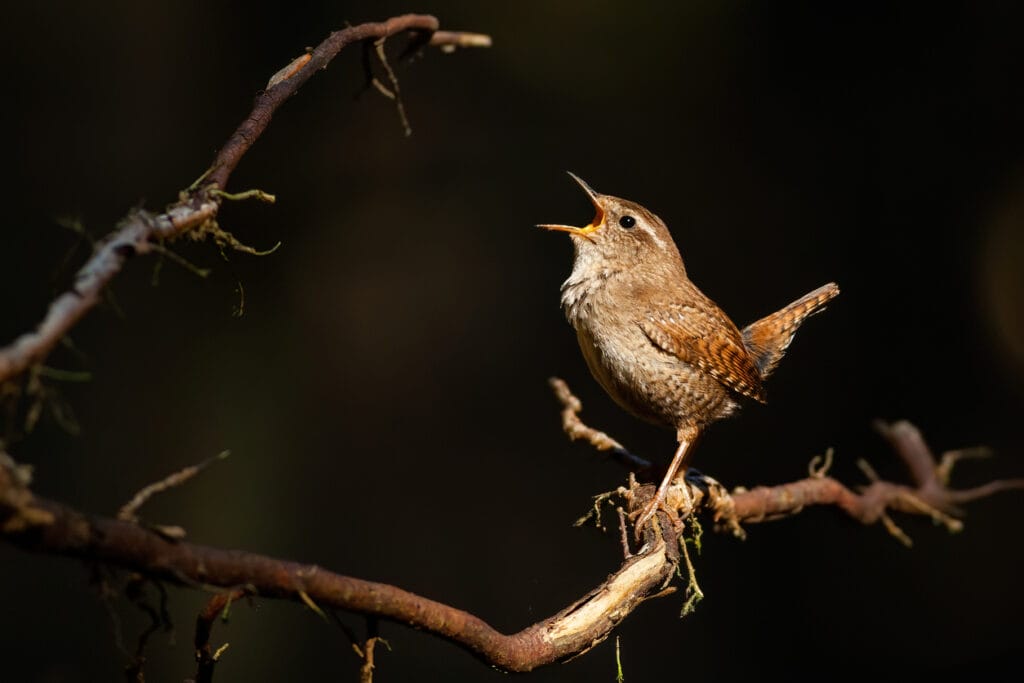
Most birds follow the rhythm of the sun, or rather, the light. There are a few migratory birds that will sing throughout the nights of spring and summer. These are owls, corn crackers, nightjars, and nightingales. These birds all have characteristic songs that help avid birders define who is keeping them up at night.
There are the typical nocturnal species that will be the usual suspects singing throughout the night. But there are other birds, like warblers, that may sing throughout the night as well, despite not being nocturnal species.
Author Note: Nocturnal labels aside, every bird follows light. And as we see increasing encroachment on natural habitat and increasing light pollution, more birds are singing at night.
Many birds sing in the morning, also romantically known as the dawn chorus. The dawn’s light instigates this morning song. The bird’s internal clock triggers the bird’s vocal cords to burst out into their morning song.

Did You Know?
The first birds to kick off the morning song are the redstart and the robin. After they’ve kicked things off, the sparrows and some finches get into the swing of things. In the evenings, the order of birds is reversed. Some researchers believe that the dawn chorus ensues because the first rays of light awaken the birds. Although the light begins seeping through, there is not enough for birds to seek food. Instead, they sing.
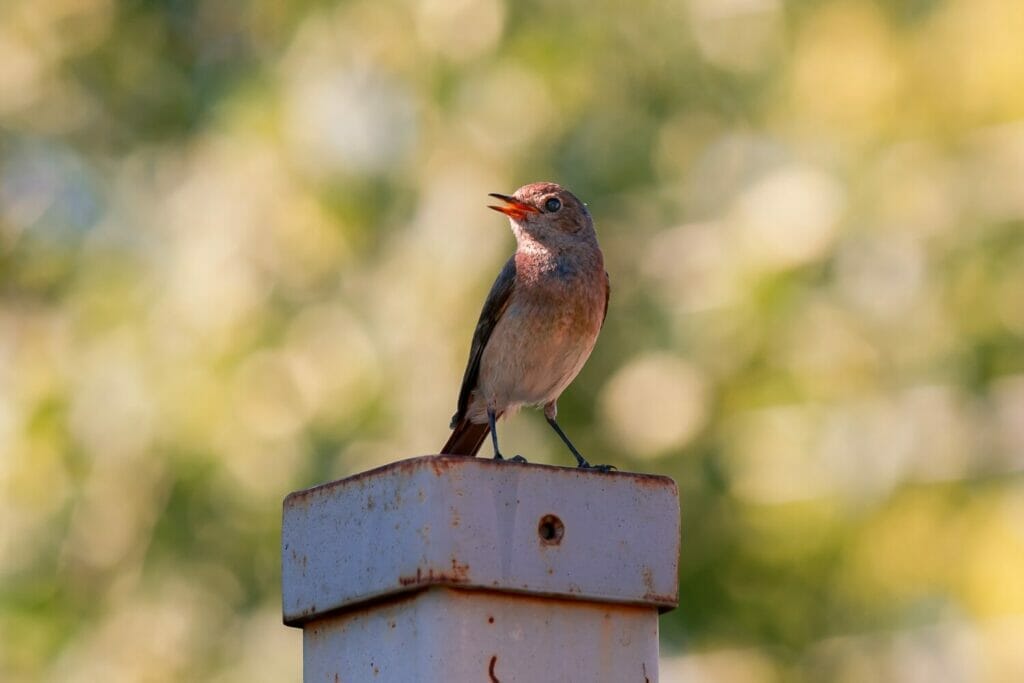
What Effect Does Dim Light Have?
Birds might begin to sing with light because of artificial light. Even dim light can trigger birdsong. Low light can cause birds to sing their songs long after the sun has set.
Dunnocks and Song thrushes often sing as the evening descends into night. But they aren’t the only birds that sing into the night. But there is one bird in particular that turns into a nighttime songster with even the faintest light. The robin may be a daytime songbird, but they are often the culprit for nighttime singing.
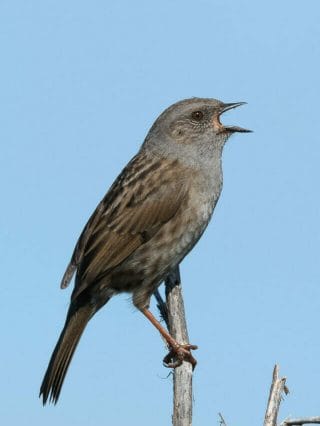
The Daytime Songster Turned Nighttime Singer
The robin is one of the most famous birds, known even to people who are not familiar with the birding world. Robins typically forage for insects and are well suited to bring active in even the lowest light.
Robins are not shy of the night and have been known to seek out insects during the night as well. One of the first birds to launch the dawn chorus, they are also one of the last birds to remain singing long after the sun has set.
Because robins are so active in dim light, it comes as no surprise that they are one of the birds that sing in the evening and night. In areas with plenty of light pollution, including floodlights and the likes thereof, Robins can be heard singing throughout the night. And if you have a robin in your area, they will likely sing all year round. Robins are a non-migratory species, and so they will keep your garden full of song all year round.
Here is a list of some birds that sing at night:
- Nightingale
- Corncrake
- Robin
- Reed warbler
- Dunnock
- Nightjar
- Song thrush
- Sedge warbler
What Else Makes a Bird Sing at Night?
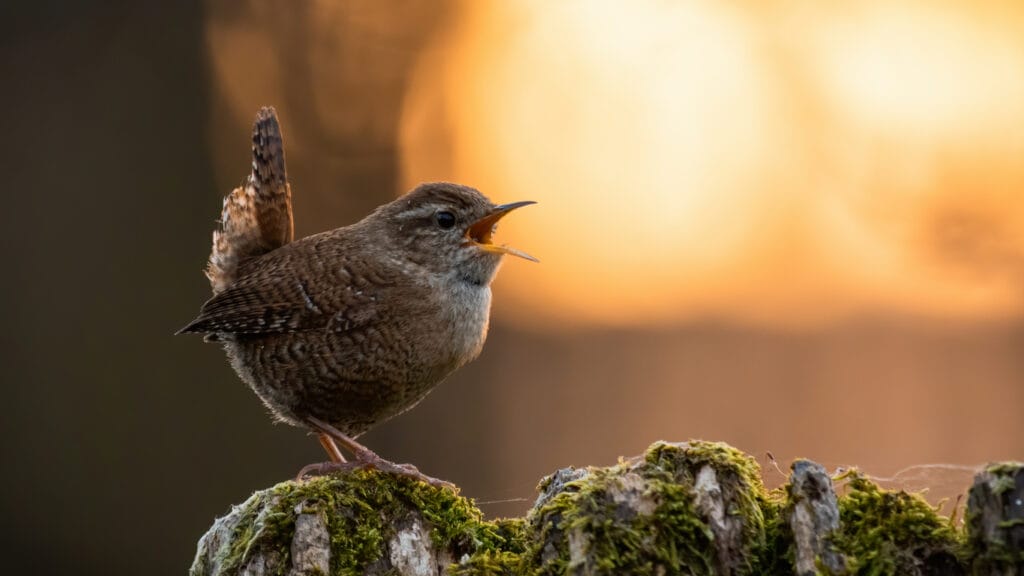
Aside from light, what else makes a bird sing at night?
Author Note: Nighttime songs can result from noise, too. Sudden noises like fireworks, thunder, or even the shaking of a tree could cause a bird to start singing.
Did You Know?
It is no surprise that the robin is one of the most active day birds at night- it is distantly related to the nightjar.
The Mockingbird is one of the most common birds in North America. They are almost as common as the nightingale is in other parts of the world. The Mockingbird is also one of the most common birds to sing in the evening. Why is this? The Mockingbird will often burst into song throughout the night because the male is attempting to attract a female. Researchers have found that a male without a mate tends to sing more often than a mated male.
That is not all that researchers have found. In the last decade, there has been an uptick in the amount of nighttime songbirds. This is especially prevalent amongst birds that are not usually active at night. Urban areas have particularly more birdsong at night.
Urban Birds
So, why are there more birds in urban areas than ever before singing at night? Well, at night, there is less competition to be heard. Everyone can agree that a built-up area, especially the city, is noisy. Noisy might be an understatement, especially amongst people accustomed to the city and birds, who have heightened senses.
The ambient noise in cities decreases at night, with less traffic and less hustle and bustle. But there is another reason why birds in cities are singing more at night. Yes, you guessed it- the increased light around. Some cities never sleep. In fact, to most birds, all cities never sleep. There is always some kind of light around. And when there is light and a bird, there is likely to be birdsong.
Are evening and morning the only time when birds sing? No, they can sing at any time of day. But, you will find that the morning will bring the most vibrant songs. The evening will also present an opportunity for exuberant songs, but it won’t be as much as the morning dawn chorus.
Adjusted Frequencies
Noise from humans can adjust a bird’s rhythm. Not only is the sheer volume an issue for birds, but the frequency can also have an effect.
Some species, such as the house finch and song sparrow, have adjusted their songs’ frequency. These birds have modified their song’s frequency in what appears to be a direct response to noise from humans. This seems to be an intelligent survival response from the birds.
Their new frequency is different from the frequency generated from humans, and as such, is less competition. Humans’ ambient background noise seems to be less competition as it does not mask the bird song due to the changed frequency.
Having a clearly articulated song is essential for males to attract females. It is also essential that the birds sing their songs to defend their territories effectively and let other threats know to back off. Noise pollution during the daytime has undoubtedly impacted the number of birds singing longer into the evening.

Birds That Sing at Night
American Robin
The American Robin is possibly the darling of North America’s backyards. It is often the instigator of the dawn chorus and is common in both urban and suburban areas. Although not a nocturnal species, the American Robin has begun singing at night due to light pollution.
Northern Mockingbird
The Northern Mockingbird is one of the most common nighttime songsters in the United States. It may be found throughout the US, but it is also commonly found across the Caribbean, Mexico, and the southern areas of Canada as well. The Northern Mockingbird is famous for its ambidextrous vocal cords.
They have been known to sing a variety of tunes and frequencies. Their unique vocal prowess is evident as they swing between tunes. To spot a Mockingbird, set your sights on the high perches in a tree. Mockingbirds have become comfortable in both urban and suburban areas.
Hermit Thrush
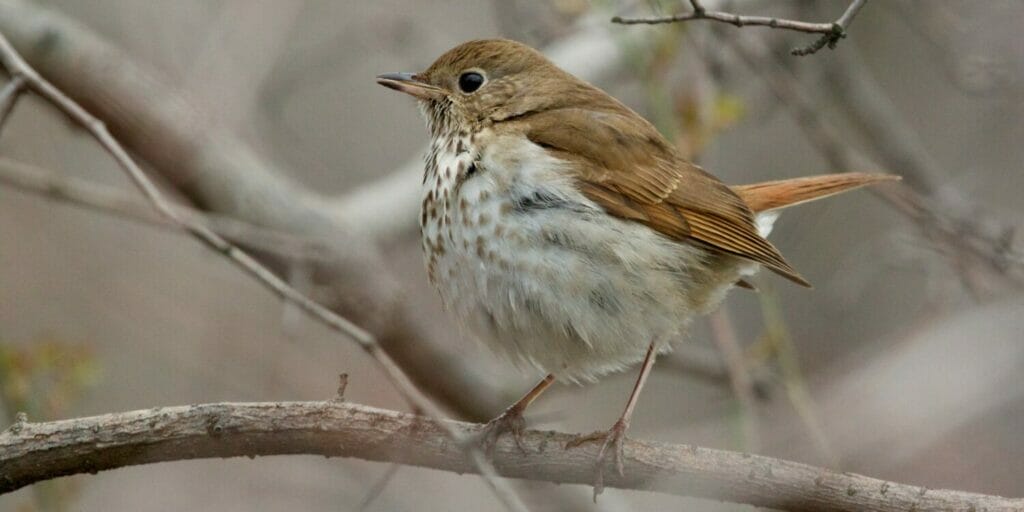
The Hermit thrush has an attractive reddy brown plumage that leads it to carry the title of one of the most beautiful songbirds. Although commonly found in North American, birdwatchers can find it in Mexico as well as Canada. They are a migratory species that have a beautiful lullaby with whimsical notes and warbles.
Common Nightingale
Although not common in North America, a list of nighttime songbirds would be incomplete without the Common Nightingale. The Common Nightingale has 200 different songs. With its musical, flute-like song, this is one bird you won’t mind hearing at night.
Black Crowned Night Heron
Author Note: Although not your typical songbird, they have a croaking call that you can often hear in the evening and into the night. The Black-Crowned Night Heron is a wading bird often found close to wetlands, swamps, and marshes.
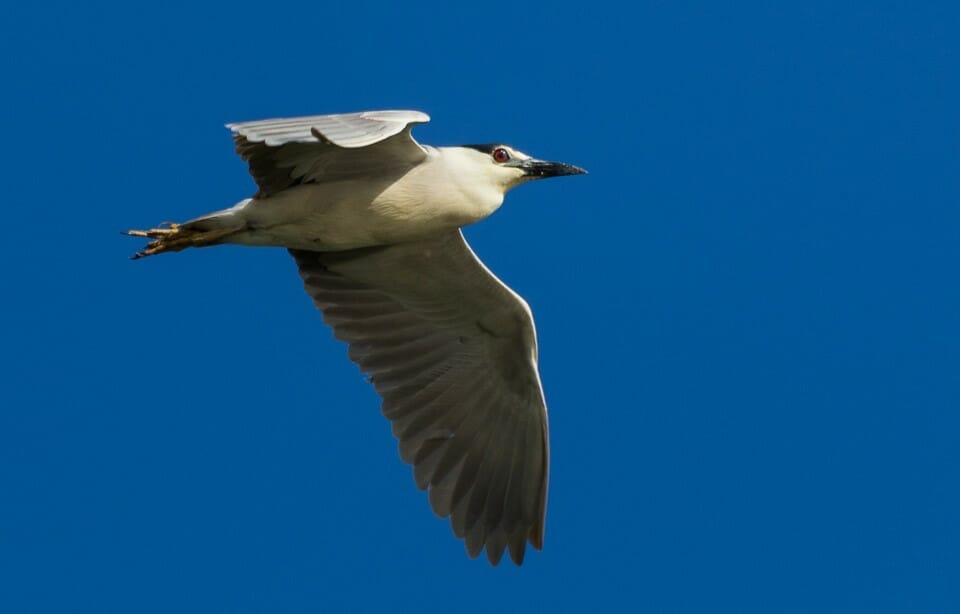
Eastern Whip-Poor-Will
The Eastern Whip-Poor-Will belongs to the nightjar family. They are often heard singing throughout the night, but it isn’t easy to see these songsters. Their plumage allows them excellent camouflage, and they are quiet during the day.
Their nighttime song can be described as enchanting as it gains momentum until it rises as it ends. The song is reminiscent of a witch’s chant as if they are calling the same name over and over.
Some other songbirds you might hear at night:
- Killdeer
- Barred Owl
- Barn Owl
- European Robin
- BlackRail
- Yellow Breasted Chat
Which is your favorite nighttime songbird?
Conclusion
You might be surprised to learn that the evening time is one of the loudest times for songbirds. But it is! We hope you enjoyed this article on why do birds sing in the evening.
Fly high friends!
FAQ
The Northern Cardinal is an early riser and starts singing at dawn. They are known to still be singing at dusk.
Most likely it is the Black and White Warbler. During the summer breeding season it can be found on the eastern side of the U.S. and has an odd call that can be heard at night.
The Barn Owl does not hoot but makes a repetitive single note call during the night.
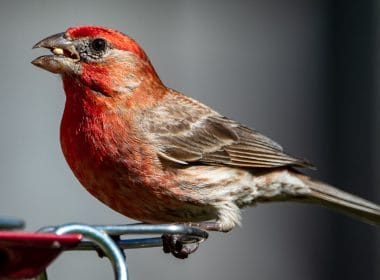

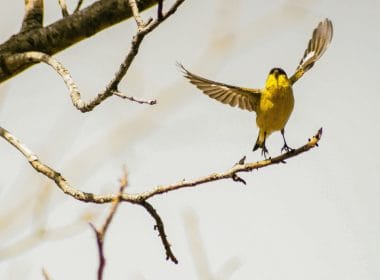
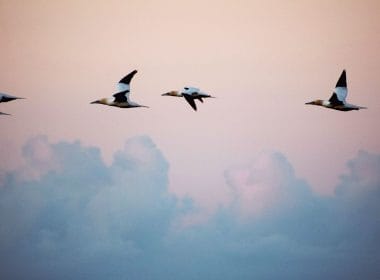
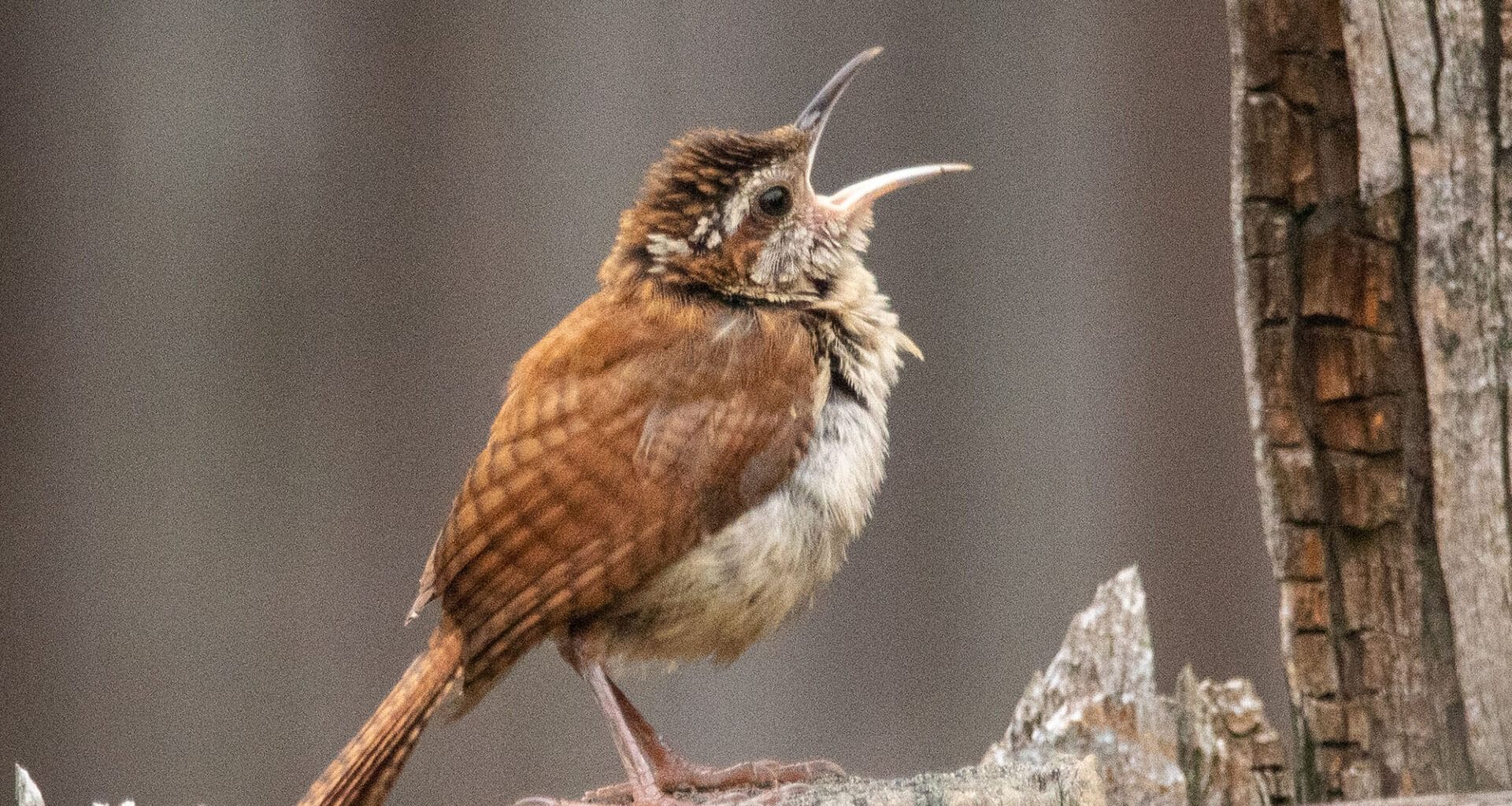
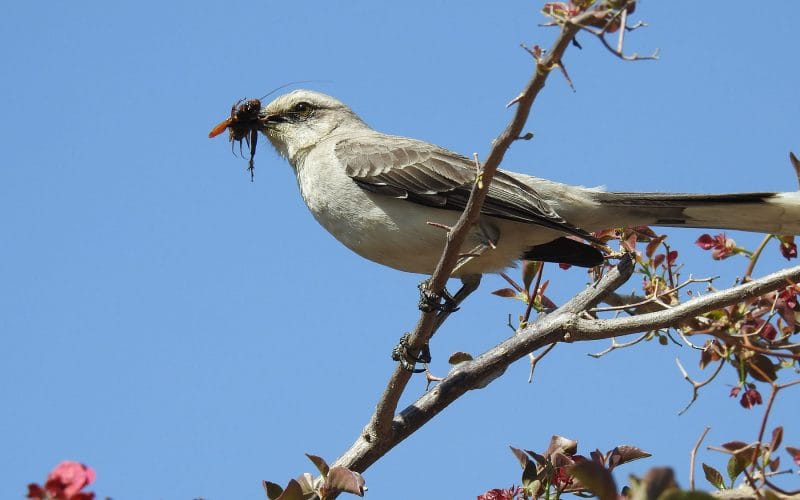
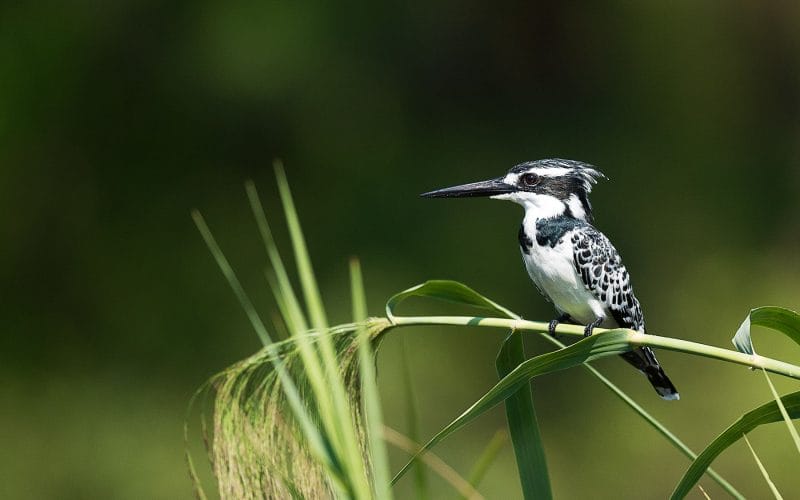
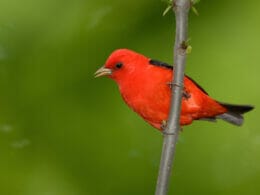
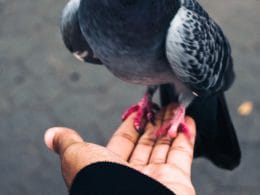
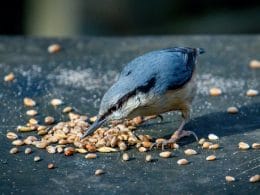
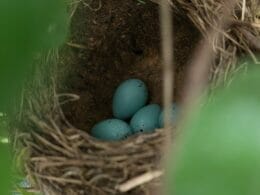
thank you for your article. Whether you are a serious bird watcher or a non-birder, the songs of the birds are music to your ears. Bird songs create a melody that soothes the heart, and everyone stops to listen. But why do the birds go on singing? There are various reasons why the avian species chirps, hums, and sings, but they do so mostly to attract new mates or protect their nests.